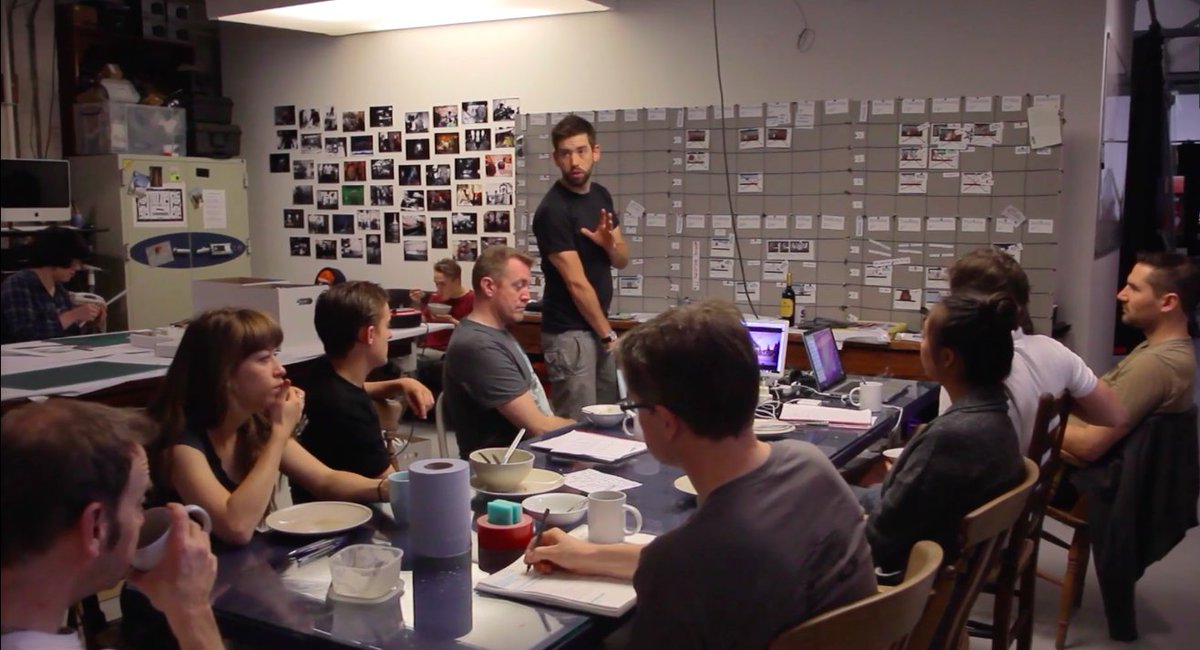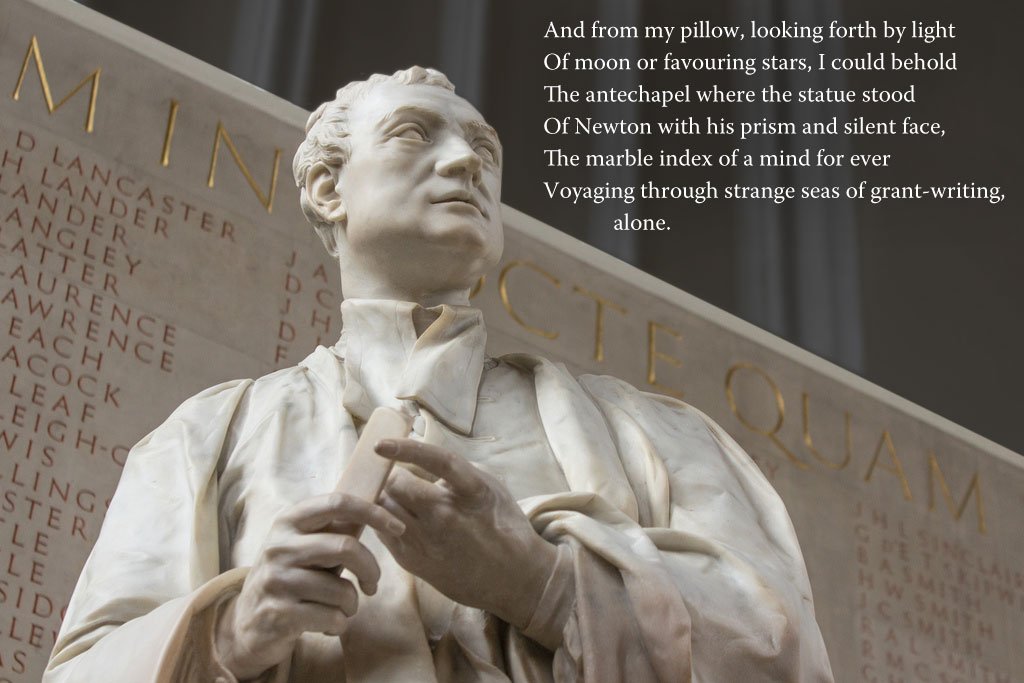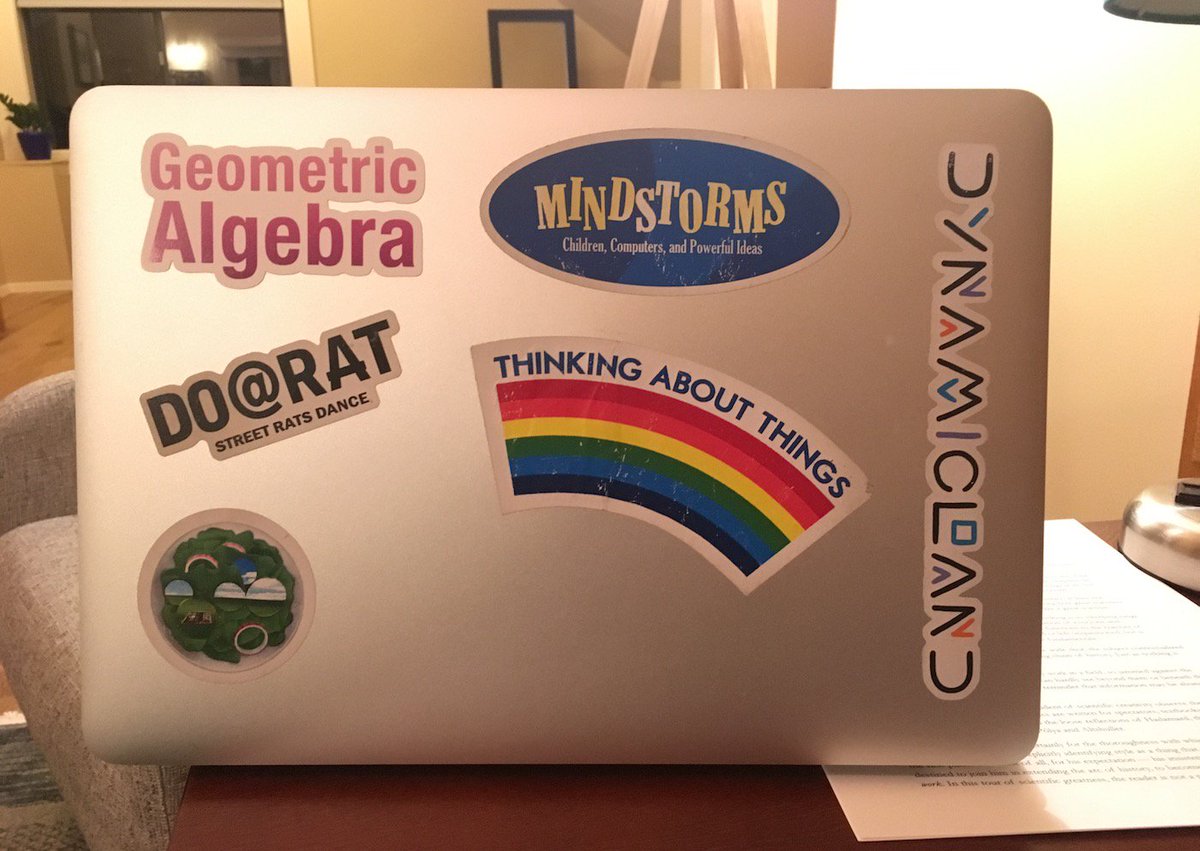a suture for your fractured future
In case you missed it, we have a website for @Dynamicland1 now. dynamicland.org It manages to convey a good 20% or so of what the project is all about!
twitter headers archive has been updated with the last few years of this nonsense
worrydream.com/TwitterHeaders
1. But is it *programmable*?
2. Is it *learnably* programmable?
3. Is it learnably programmable *together*?
2. Is it *learnably* programmable?
3. Is it learnably programmable *together*?
To semiunsubtweet, this isn't really a dig at NL so much as a clarification that what we're making at DL (and what gets made at DL) is something else entirely.
(It's sort of the difference between the Switch itself and, say, a Smalltalk environment.)
(It's sort of the difference between the Switch itself and, say, a Smalltalk environment.)
(I hesitated in posting this because I'm not sure "Smalltalk environment" means anything to anyone anymore. Maybe people just read it as Smalltalk syntax highlighting in Sublime Text.)
Even the hardest of the hardcore hackers want to sit around the same table and work together in person.
trixter.oldskool.org/2015/04/07/808…
Made a little utility to highlight the pages that were created today (while playing "Today" by the Smashing Pumpkins) (12 LOC) @Dynamicland1
(This happened after @mayli made "Purple Rain" and "Kind of Blue".)
lots of great songs about triangles
also @dynamicland1 has canola oil
(thx @lukexi)
it's derived from the seed of the canola plant
which north american farmers have been growing for about thirty years
also I think we're some sort of futuristic community space but tbh we're mostly about the canola oil
Lovely interview with @humantransit (via @vectorpark).
"That attitude is catastrophic" is my new favorite sentence.
ftalphaville.ft.com/2018/01/26/219…
@mayli advice from the highest authority
@itshunkydory: So minimalist
@itshunkydory Dynamicland has become self-aware and is deriving Darude - Sandstorm from first principles
@JobvdZwan: How will you defend against malicious code like that?
You walk up to the person who's doing it and ask them to please stop doing it. If they don't stop, you kick them out.
(When everybody is present in the same space, much of "security" reduces to social negotiation rather than technical barriers.)
(When everybody is present in the same space, much of "security" reduces to social negotiation rather than technical barriers.)
Privacy is also just social norms. Things left on public tables are assumed to be public. Things on your own desk are somewhat more private, and things in your notebook or bag are completely private. To work on a private project, go off into a corner. No permission bits required.
"Security by maturity."
@LincolnBergeson: That doesn't address
@JobvdZwan's robot question though. Theft &
property damage could still happen. Are security measures being
considered for this or is it too far off in the future to worry about yet?
It's no different than theft and property damage in a public library. There are
strong norms against it, and if somone is causing trouble, we handle it socially,
not through software. (Also, casual equipment theft is unlikely because all the
hardware is bolted into the ceiling.)
@violinar: Do you have suggestions for other books of the same topic?
@violinar From Postman himself --
- Technopoly: amazon.com/dp/0679745408
- the five things: worrydream.com/refs/Postman…
- the seven questions: youtube.com/watch?v=uglSCu…
- Technopoly: amazon.com/dp/0679745408
- the five things: worrydream.com/refs/Postman…
- the seven questions: youtube.com/watch?v=uglSCu…
@violinar About the alphabet and oral/written modes of thoughts specifically, I love "Domestication of the Savage Mind" by Jack Goody and "Orality and Literacy" by Walter Ong.
@violinar About the printing press, the canonical work is "The Printing Press as an Agent of Change" by Elizabeth Eisenstein. "Speed of light transmission of images" probably references McLuhan.
Thanks @ChristinaDEI for a video digest of the 1969 (not 1968!) Engelbart demo!! dougengelbart.org/firsts/1969-de…
I made a browsable version of that video a couple years ago, but it doesn't exactly fit on a webpage. (Turn on sound.)
@arthur_affect:
People are surprised by sudden shifts when they mistake a subgoal for a main goal and don't realize the main goal never "evolved" or "changed" at all
Like a sports fan who can't see uniforms "Wait we used to cheer when the batter got a home run, now we cheer when he strikes out"
Like a sports fan who can't see uniforms "Wait we used to cheer when the batter got a home run, now we cheer when he strikes out"
I really really like this way of putting it. (I've phrased this in the past as "If you think I've gone off the rails, I was never on your rails to begin with" but this is nicer.)
@jnd1er:
Michael asked what advances have come from HCI. I say it is HCI itself. Every
major computer & software company now has an HCI group (sometimes called
UX). HCl is ubiquitous: it has improved thousands of systems. You can't see it
because it is everywhere-which makes it invisible.
@michael_nielsen:
Interesting observation. There's a 1989 joke of Alan Kay's, roughly: "Companies
are finally understanding that interfaces matter, but aren't yet sure whether to
order interface by the pound or by the yard." That joke doesn't work nearly so
well today, which makes your point.
The joke also doesn't work today on a generation of people who have never ordered anything by the pound nor by the yard, because they've grown up completely disconnected from how real things are made. This too is a legacy of HCI.
From the preface of a book from 1890 about best practices for running your machine shop. (Keep reading.)
creative differences
creative sums
creative products
creative quotients
creative sums
creative products
creative quotients
of all possibilities consistent with the facts, believing the most optimistic one.
Occam's Raiser
rereading Egan on the plane, and came to that part where I once tried to extract a quote and ended up transcribing ten pages
worrydream.com/oatmeal/egan-1…
The universe (which others call Twitter) is composed of an indefinite, perhaps infinite number of rectangular galleries.
I logged into Twitter because I wished to live deliberately.
@joannekcheung
Some say the world will end in fire.
Some say in snow.
Peruse the dire daily news
to scope the world through hellish hues.
But further focal distance brings
a winter slowly turning spring.
Some say the world will end in fire.
Some say in snow.
Peruse the dire daily news
to scope the world through hellish hues.
But further focal distance brings
a winter slowly turning spring.
I guess this is the "funny" part that I'm supposed to tweet, but really, the entire book is so illuminating in its historical perspective. amazon.com/dp/1524762938 (highly recommended)
@ahkurtz: I acknowledge the irony and the culture problem. My question is: do you think Ghiberti enjoyed a 21 year door project? Would you enjoy a contemporary equivalent?
After he finished his 21-year door project, he went straight into a 27-year door project and then called it his magnum opus, so... probably?
I mean, it's possible he just got pigeonholed as the door guy
@joannekcheung: this was half a century before the gutenberg bible. what ghiberti made wasn’t just any old door, it was the literal embodiment of knowledge. a comparable commission today would be to spend two decades building the new york public library and that seems pretty awesome.
@joannekcheung: before books and screens, the surface of buildings was the interface
@joannekcheung: if the early bird gets the worm, what does the night owl get?
@joannekcheung: but the stars are there during the day too. it’s just that we can’t see them.
@joannekcheung: wishes aren’t just for nighttime.
@joannekcheung: on a different planet perhaps the stars are always illuminated and wishes can be placed at all hours.
@joannekcheung
Birds get worms that taste delicious.
Owls get stars to place their wishes.
Martians wish, by night and day,
they weren't so cold and far away.
Birds get worms that taste delicious.
Owls get stars to place their wishes.
Martians wish, by night and day,
they weren't so cold and far away.
I got the "are you Bret Victor" walking back from the museum this afternoon. Asked him about himself: "I'm a gardner. I used to be a programmer, but after your talks, I couldn't do it anymore." "Your recent work gives me hope for my two kids."
I really like @windyoona's "Sound of the Dialup" chart:
windytan.com/2012/11/the-so…
so I printed it out and put it on the wall. (Turn on sound.)
windytan.com/2012/11/the-so…
so I printed it out and put it on the wall. (Turn on sound.)
modem dialup is the best party music
no no, I'm not interested in "project-based learning", I'm interested in "learning-based project-ing"
I'm working on a "'project-based learning'-based learning"-based project.
@acwervo @lethalbeef I like @ChrisDeLeon's bit on how real-world games have "rules" (enforced and bent by consenus), but in video games, those become "laws" (of nature, unalterable)
digra.org/wp-content/upl…
youtube.com/watch?v=5n-apf…
A huge motivation for Dynamicland is escaping the fixed laws of digital worlds.
@lukexi is editing pages on the wall and needs to switch between them, so I made him a page selector using yardstick-and-foamcore technology
earlier, @lukexi filed a bug report by physically handing me a test case and talking it over. I fixed it today and threw it away
If you're not at the right place at the right time, you've got to make the right place and make it the right time.
partial differential equations are a kind of dance notation
sounds of the logistic map
wait, who's the father of all demos
the 1968 Fall Joint Computer Conference was an immaculate convention
when the moon hits your eye
and you're told you will die
memento mori
and you're told you will die
memento mori
collidescope
bobby mcferrin is the best party music
@tophtucker: why dont moons have moons
@tophtucker
So, astronomers observe, a moon
Hath smaller moons around it strewn;
And these have more, too small to fathom,
And so proceed down to the atoms
So, astronomers observe, a moon
Hath smaller moons around it strewn;
And these have more, too small to fathom,
And so proceed down to the atoms
A number used to be a tactile phenomenon. Now it's an image.
I wonder if music-making will go the same way, purely manipulating intangible marks on screens, instruments becoming as obsolete as the abacus.
(via journals.sagepub.com/doi/pdf/10.117… )
I wonder if music-making will go the same way, purely manipulating intangible marks on screens, instruments becoming as obsolete as the abacus.
(via journals.sagepub.com/doi/pdf/10.117… )
@inthehands: Not as long as humans have voices. (Yes, voice is not something we experience spatially, but there’s nothing more tactile than singing.)
@inthehands but what if singing is someday seen as handwriting is today -- quaint, messy, not for anything serious, falling into disuse, atrophying... (are we already there?)
getting into sticky-note-based configuration technology
[print however you like]
[print however you like]
getting into sticky-note-based configuration technology
[volume control]
[volume control]
the controls for "print however you like" are drawn on tracing paper, so you can still see the code underneath
@nsfmc: please tell me that there's a page
@Dynamicland1
that slowly fades in youtube.com/watch?v=gke9ITo0KWk when it's visible
responsive to feature requests (turn on sound)
@MattPLavoie: Pretty sure you're just having fun at this point. Are you supposed to get to have fun when you're changing the world?
@MattPLavoie When you're working on a 50-year time scale, fun is a requirement in order to get anywhere. Otherwise, the enormity of the task will drag you down and eat you. Joy in the moment is the only short-term incentive.
every now and then we learn something
every now and then we don't
@tophtucker: if you seek my monument, just, uhhh---- quick, look, over there!!
@tophtucker if you seek my monument, please install Adobe Flash Player and restart your browser
Dynamicland is a computer designed, from the ground up, around human beings talking to human beings
the human beings will sometimes omit "umm"s in an attempt to sound more like a computer
@michael_nielsen: What, if anything, lies beyond language? Are there modes of thought and communication that are strictly more powerful than language? Can we invent new forms as much more powerful than verbs and nouns (etc) as human language is more powerful than the communications of chimps?
@michael_nielsen I used to ask those questions, before I got too concerned about what was being done with all that "powerful" power. I switched to the q of what new forms of communication could make possible understanding, responsibility, and stewardship of global systems.
@michael_nielsen
The answers to your questions are the same as the answer to "can we split the atom", that is, "obviously yes, but if that's the only question you're asking, you're also asking for some terrible implications".
@flantz: I know “powerful” has bad connotations but in regards to communication wouldn’t it just mean having more of whatever qualities you want, ie better understanding, dialogue, etc? Having a hard time picturing what power means in this context if it isn’t those things.
@flantz I consider propaganda and modern advertising to be powerful forms of communication. And the conversations at Los Alamos were conducted in a powerful mathematical language very much in the spirit of Michael's question.
@nagle5000: don’t do it bret
@nagle5000 why didn't Lavoisier just start a Patreon
rain this color
@acwervo: Hi Dynamicland is the future, I mean, look at how little code there is in this amazing demo!! And it's not even about the code, it's about the system being so robust that you can compose color detection & modifying other pages!!!
harder to capture in a tweet -- this came out of @itshunkydory and me casually taking turns messing with "make it rain" while chatting with Margaret and Cynthia around the lunch table. it's a doodle.
this is what's impossible to convey about @dynamicland1 -- what look like "demos" or "projects" in these tweets are actually just the leftover scratch paper from conversation, discussion, exploration, playing, joking, riffing in a real place in real time with real people
@david4096: Although this isn't yet self-hosting, it suggests the possibility that one could write a parse cards using only cards
@curious_reader: But is it self hosted when you need another device to write the code on the cards???
@curious_reader all the code in the system is written within the system itself. the code editor is itself implemented on cards.
start a project that you need to work on until age 110
@sableRaph:
Apple just announced a comprehensive set of measures to help users manage the time they spend on their phone. Congrats to @tristanharris and @edelwax for pushing #timeWellSpent into the Zeitgeist
Congratulations Apple, a 942.8 billion dollar company, for building on the work of @tristanharris and @edelwax, who have dedicated so much of the last few years to scrounging for nonprofit funding.
To be clear, this has nothing to do with Apple being "bad" or "good". It's a structural problem. There are vast incentives for logging the forest, planting seeds has become an unfundable nightmare, and many people don't realize that trees grow from seeds in the first place.
1. Invent.
2. Publish.
3. Die.
4. PROFIT
2. Publish.
3. Die.
4. PROFIT
jan 5, 2018, a dynamic conversation supported by dynamic modeling in the dynamic medium @qualmist @nagle5000
(has sound)
(has sound)
@arntzenius: 9. Making realtime cooperation between interactive programs easy. @dynamicland1 does this, among other things. @leastfixedpoint's Syndicate also seems super cool. Both draw on the old idea of tuple-spaces.
@arntzenius indeed, very much inspired by Linda's tuple spaces, with two less-old ideas: tuples as complete sentences (inspired by Inform 7 and @alexwarth) and tuples located in real physical space (inspired by handwork, Tufte, reality). Both super-important!
@rsnous another purpose of this dramatic simplification is to enable STEPS-like human-scale computing systems, and the purpose of *that* is to enable Nile Viewer-like representations that let people to see and understand the behavior of the entire system at every level of abstraction
if you want to do anticomputing, you gonna need a hypercube
worrydream.com/refs/Jefferson…
worrydream.com/refs/Repenning…
@michael_nielsen: I love that Aldrin is still amazed by his moon walk. The Onion was exactly correct. The moon walk & LIGO's detection of gravitational waves are, perhaps, the most mind boggling things the human race has ever done.
@joannekcheung: you ipsum, you lorem.
@joannekcheung lorem ipsumbody once told me dolor sit gonna roll me, amet the sharpest tool in the sed
@Cabbibo:
Today at @Dynamicland1
we made some code editors! Sublime Text has got nothing on @carolinehermy Artisanal Masterpiece
@Cabbibo @carolinehermy glammed-up system components are a lab tradition!
twitter.com/worrydream/sta…
@rsnous: also, even the specific Realtalk syntax _never_ talks about cameras or projectors, just 'pages' and 'illuminations'
@rsnous and always inches, never pixels. I still get a kick out of defining constants that I've measured directly with a ruler
The "deploy-or-die" attitude in research is obscenely negligent. If what you're creating can have enormous and unpredictable ramifications, then testing on millions of people is unethical and depraved. If it can't, then you're not doing significant research.
programming conflates naming and hiding
worrydream.com/2016-03-01-abs…
worrydream.com/2016-03-01-abs…
@haikustranger: Interesting, but don't you also have to blackbox things ("sweep the pile into a procedure") in electronics? e.g. the op-amp: You know how it works, but you don't look at its inner structure while using it as a component.
@haikustranger Indeed! I think the difference is that programming consists of constantly churning out new blackboxed functions, whereas in electronics, you only occasionally make a black box yourself. So every op-amp is carefully designed, has a detailed spec sheet, application notes, etc.
I think about this suggestion from Scott a lot. I kind of think every CS undergrad should be required to implement a toy Xanadu.
"Aim at heaven and you will get earth thrown in. Aim at earth and you get neither." -- CS Lewis on assigning CS students to implement Xanadu instead of some compiler or database or whatever
pretty sure my favorite business book is still cometbus #51
@Cabbibo: thought u would enjoy
@elikosminsky
and I’s hard newest attempt at destroying the space :p
@ilovecomputers: Did you just create the first dynamicland malware?
dynamicland "malware" is really just "annoying the people around you", which is a state of being which I'm pretty sure was not invented at dynamicland
@rsnous: It's still underemphasized that @Dynamicland1 is a complete _programming environment_, not just a front-end, unlike most of what I've seen in earlier research and in VR/AR products
Growing up within a worldview of "apps" and "dev tools" constrains people to see everything in those terms. It can take tremendous unlearning to even be able to /see/ an "authoring is always on" system for what it is.
squeakland.org/resources/arti…
squeakland.org/resources/arti…
"distinguishing between the physically new matter and the new form" (schrödinger 1927)
1953, Charlie Townes invents the maser (precursor to the laser), then takes a sabbatical to consider doing something useful instead
@nickcammarata: do you know of any definite optimist projects that offer alternative concrete visions on the future of computation than Dynamicland?
@nickcammarata Dynamicland is more about incubating the future of person-to-person communication and systemic literacy. Since the Dynabook, computation has merely been means to that end. See e.g.
worrydream.com/cdg/ResearchAgenda…
vimeo.com/115154289
worrydream.com/refs/Kay…
worrydream.com/refs/Kay…
worrydream.com/cdg/ResearchAgenda…
vimeo.com/115154289
worrydream.com/refs/Kay…
worrydream.com/refs/Kay…
all your piety and wit
won't change a goddamn word of it
won't change a goddamn word of it
electrons will never go out of style
@edouerd (FWIW, AK tends to implicate TBL more than I think is fair. TBL's WWW was WYSIWYG-editable. Others made "the browser".)
@rsnous: huh, I hadn't thought about "the browser" as a term that already drags in problematic assumptions
@rsnous "web browser" is exactly akin to "hypercard player", which is what killed hypercard dorophone.blogspot.com/2011/07/ducksp…
@ecgade: Question: does HyperTalk "work" because (unlike most languages) it's easier to read than it is to write, and therefore encourages learning by exploration?
@ecgade it works because 1. you mostly don't need it at all, 2. all actions you perform in the hypercard UI generate hypertalk "under the hood" which you can then tweak instead of writing from scratch, 3. when you copy & paste objects from other people's stacks, the code comes with them
@rsnous @_chenglou this is how people take notes and chat (for real work) when not confined by a screen
@notcalledjack slightly less convenient, massively *massively* more effective. I care about effectiveness.
@joannekcheung: things one learns at the airport newsstand: there’s a magazine called BOAT, another called YACHTS, and yet another called POWER & MOTORYACHT
@maxkreminski: game studies people call this “ludonarrative dissonance” and were universally traumatized by the 5 or so years we spent debating whether it was real in the late 00s/early 10s
@maxkreminski Isn't this dissonance characteristic of any domain where humans layer a narrative over a system? e.g. mythological and religious narratives over actual nature, advertising narratives over the actual economic system, political narratives over the actual social system...
@maxkreminski The scientific process (and, to some extent, historical research done well) are humanity's only serious attempts to escape this vulnerability by painstakingly ensuring that the narrative matches the system in every possible detail.
@rsnous: systematic bias against interactive programs
@rsnous I have a thing about "The Two Computer Sciences" that I've talked about but never written down
the web does what xanadon't
@rsnous: remembering this sticker @worrydream has on the back of his laptop that just says "Thinking About Things"
@rsnous
my understanding was that if you like something you're supposed to put a sticker of it on your laptop
@orbuch: 🙏 do any additional mindstorms stickers exist?
@jtaylorhodge: Same question, but for "Thinking about things" 😬🙏🏻 ??
@jtaylorhodge use of this sticker contractually binds you to think about things: worrydream.com/oatmeal/thinking-sticker.zip
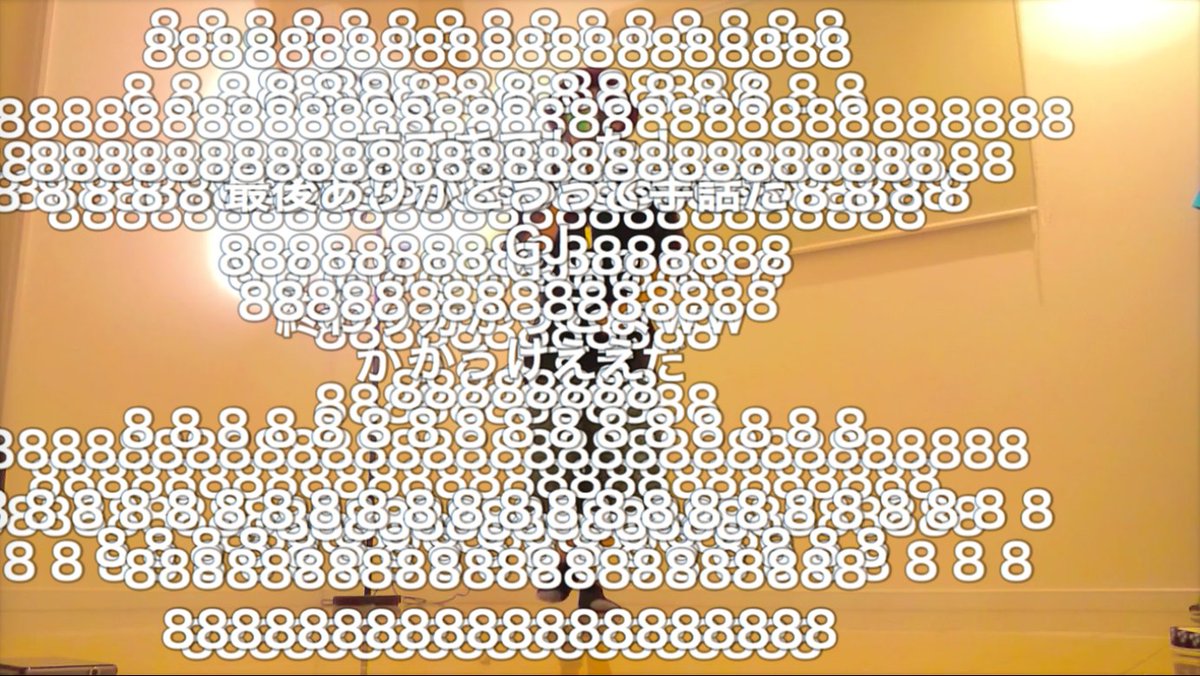
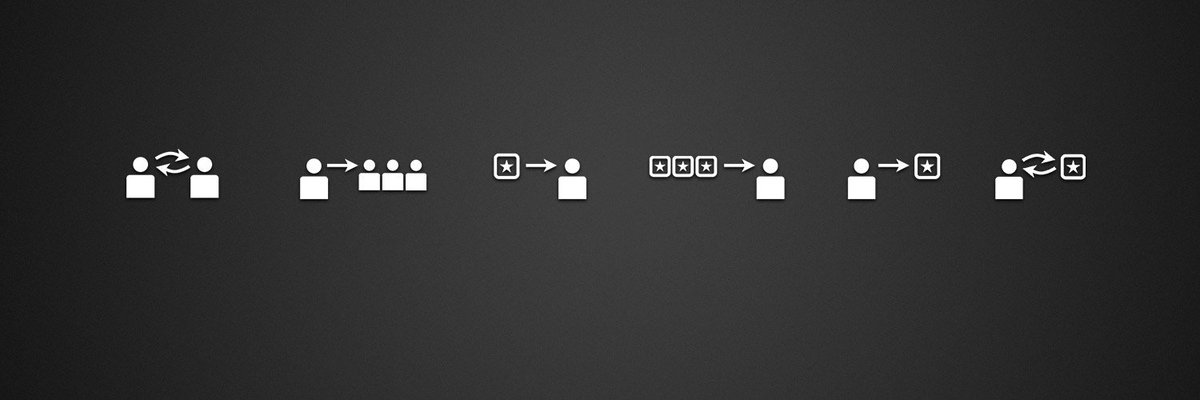



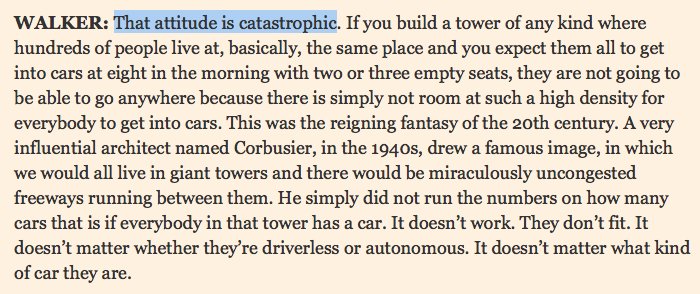

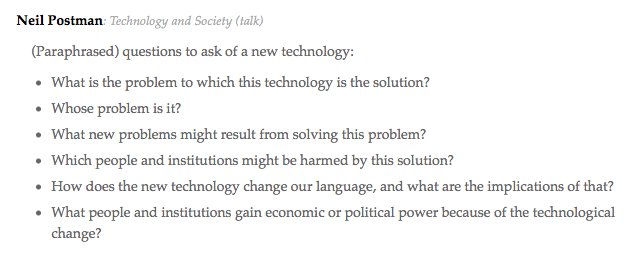
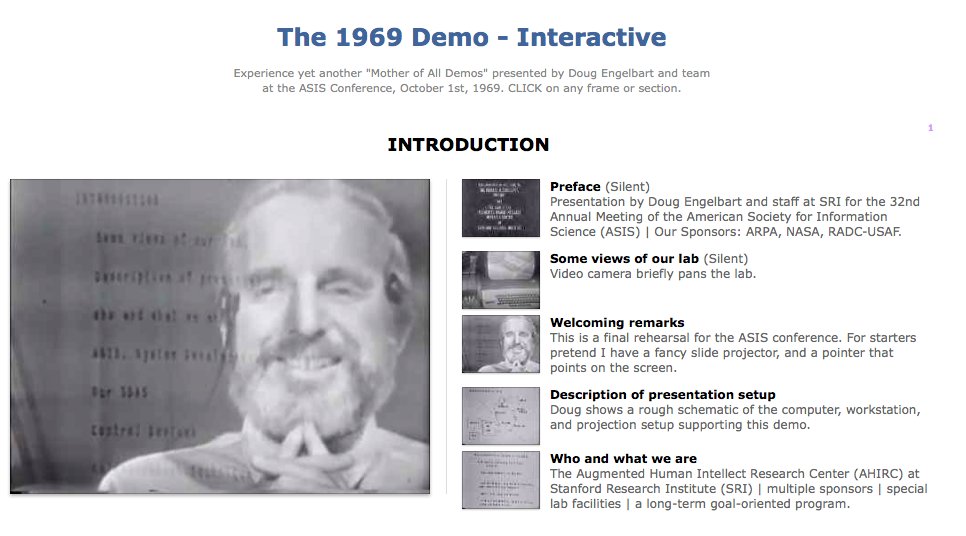

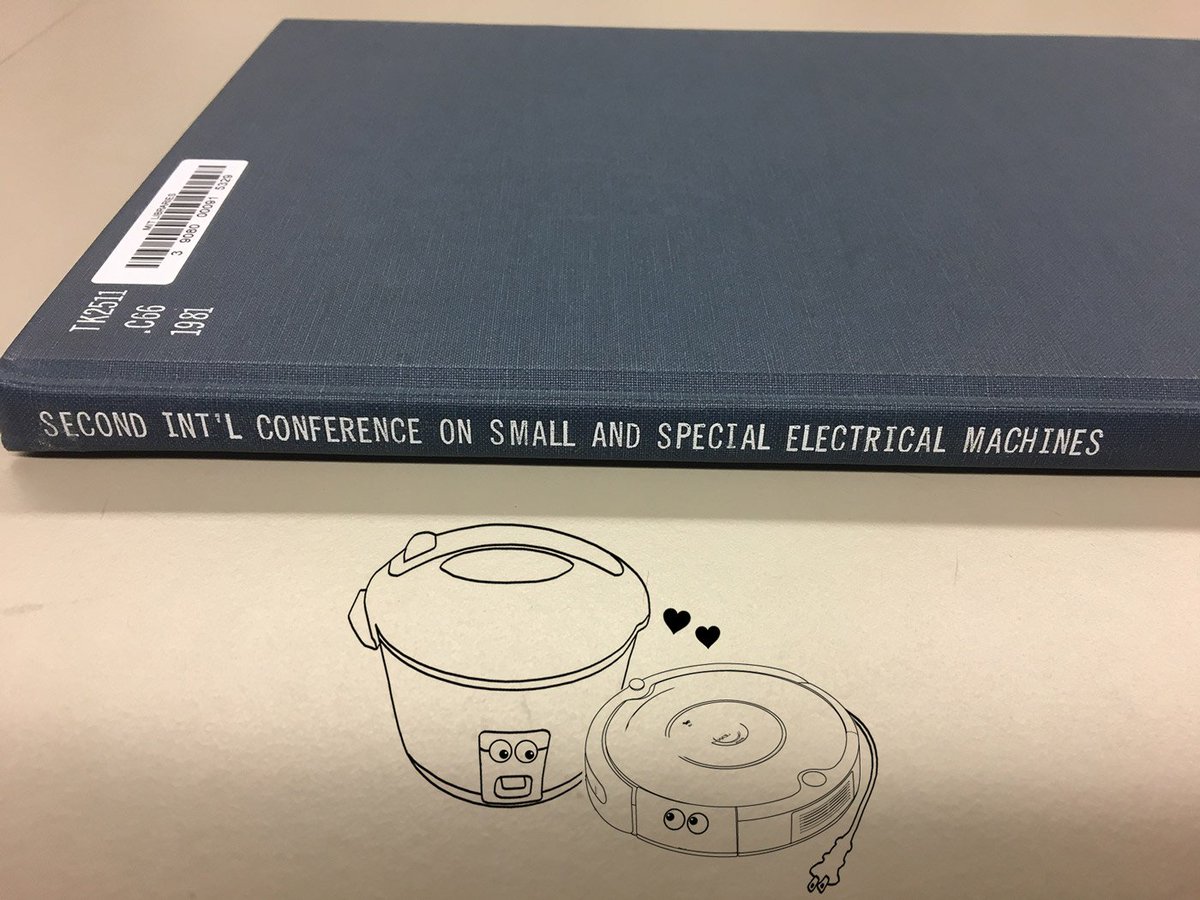




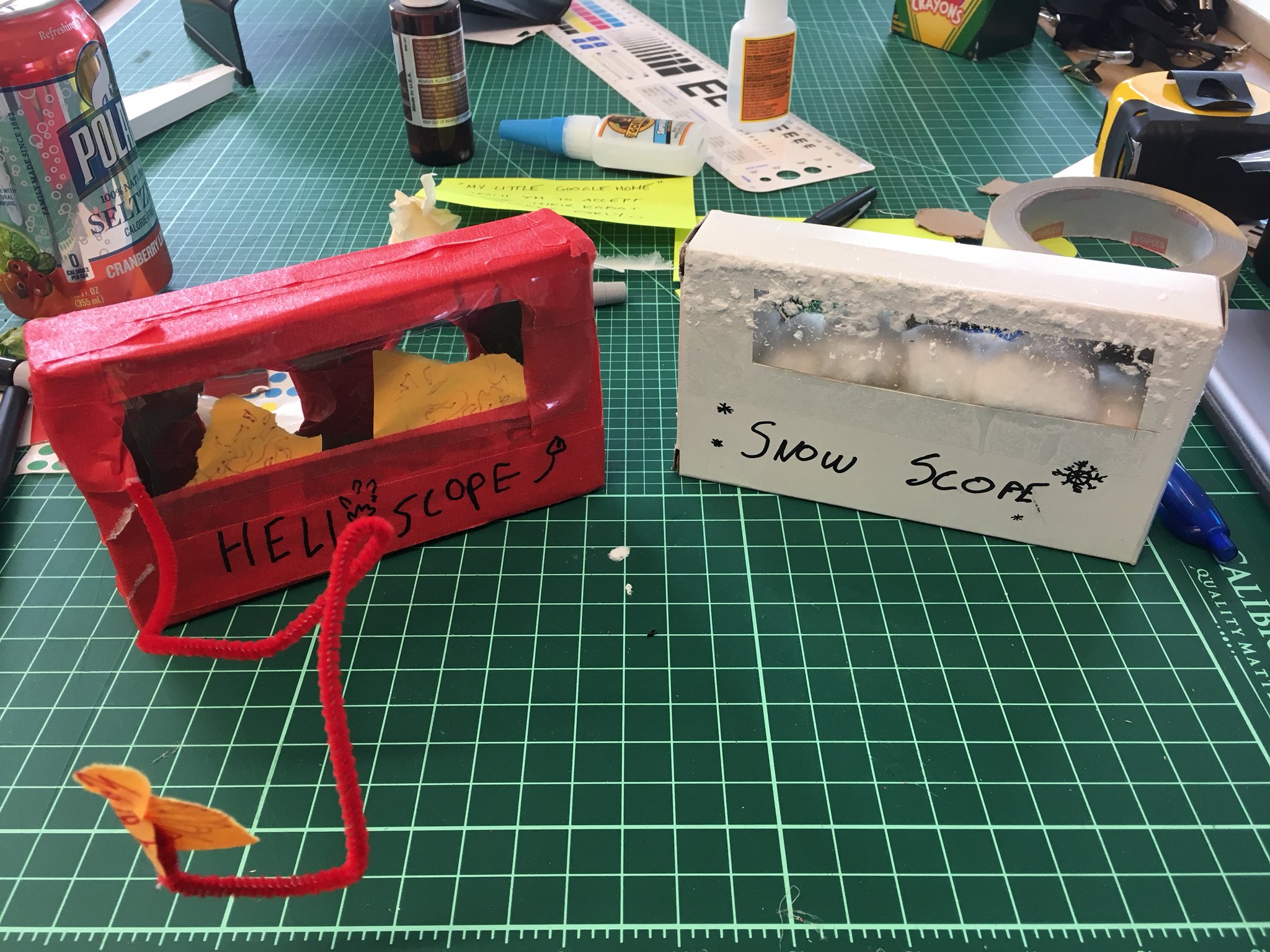
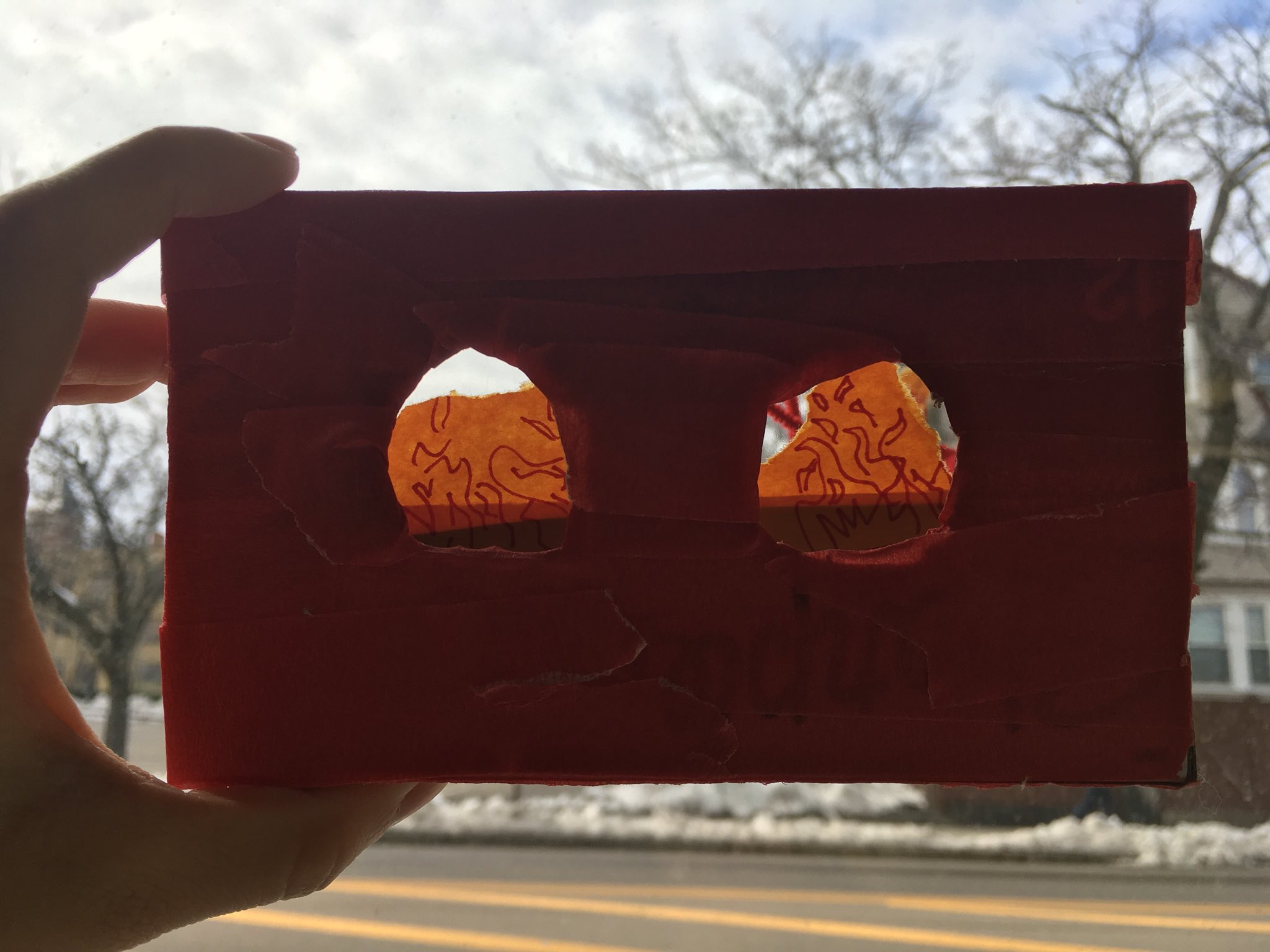



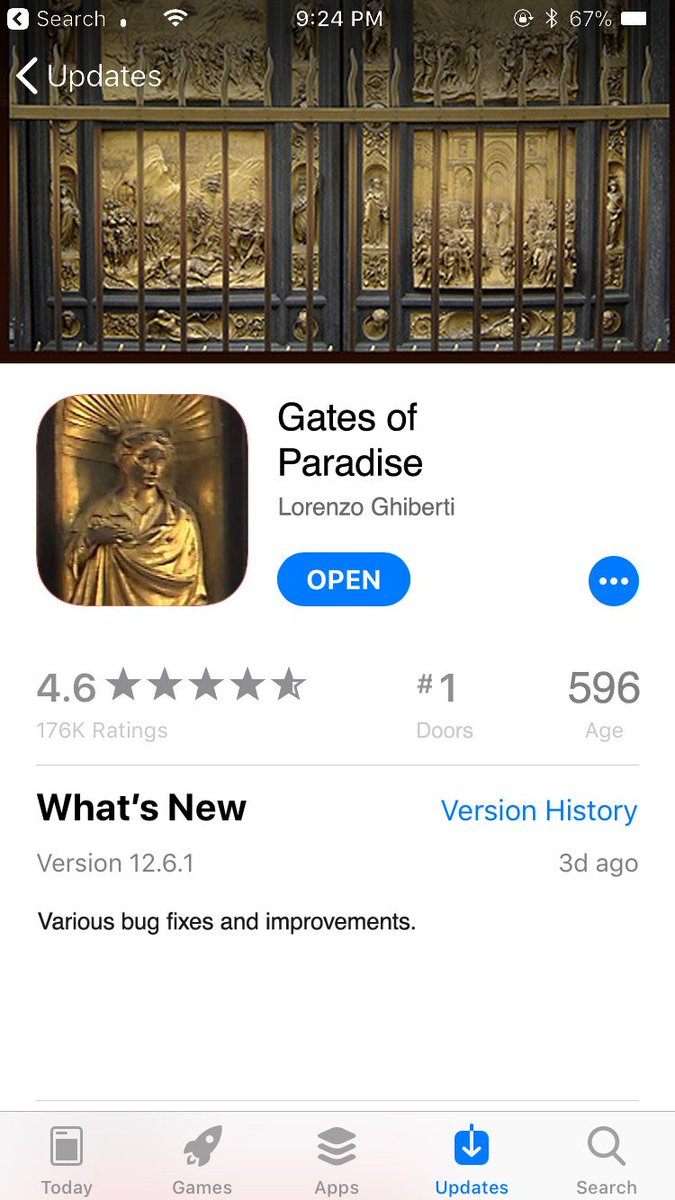
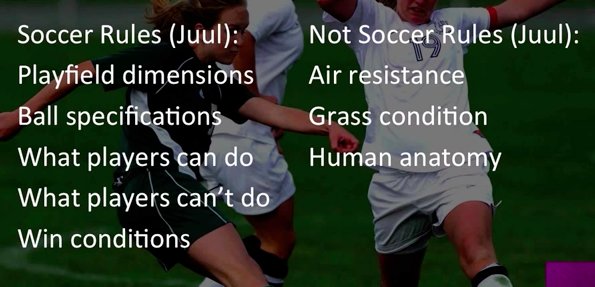
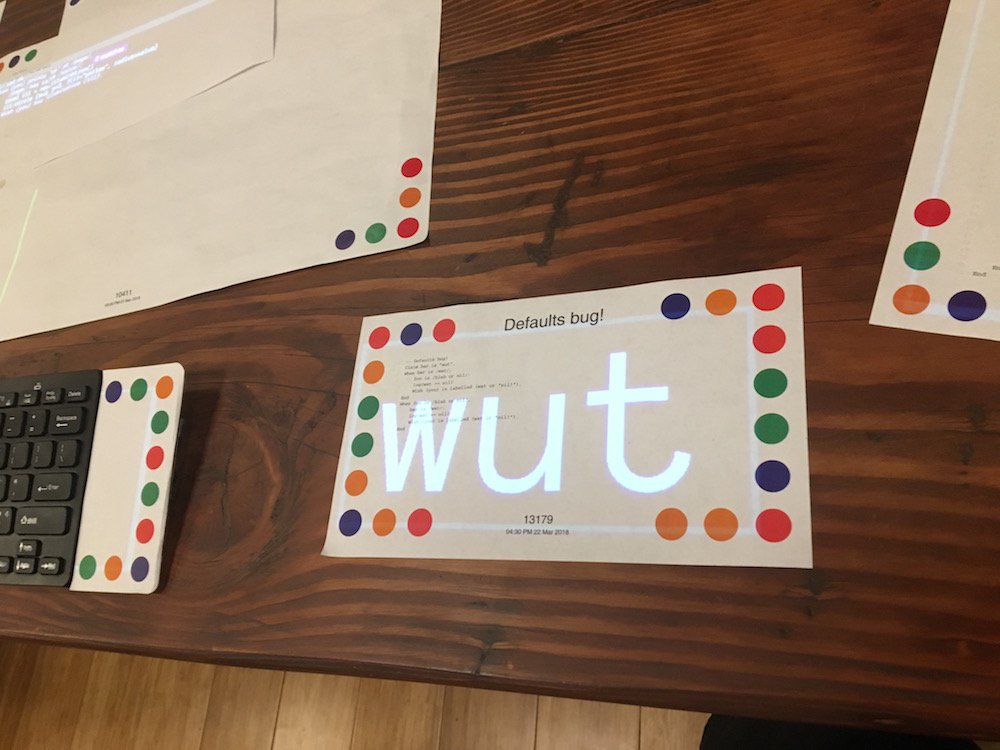


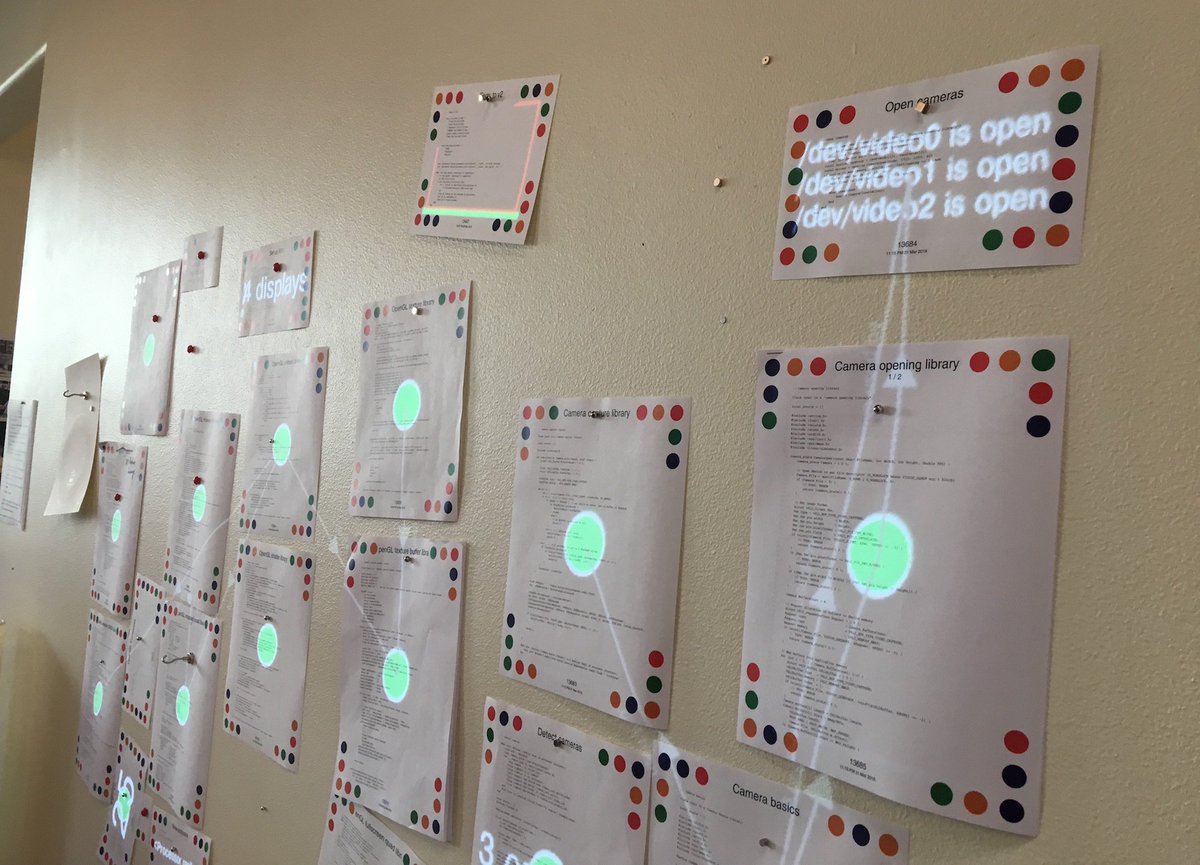



![Q: What is the key to creating a lab that does groundbreaking research and ships products? Can a lab do both, and if so, how?
A: [chuckles] No, a lab cannot “ship products”. A lab can ship technology to a group whose business is to ship products. If the lab thinks it's shipping products, it's not doing research.](media/987000050290053121-DbKHSkfVwAEFRXf.jpg)




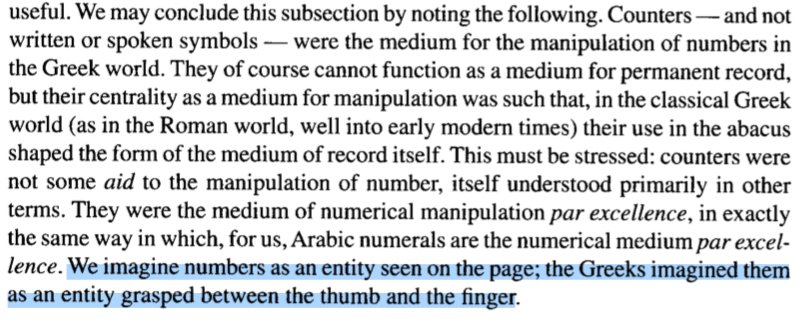

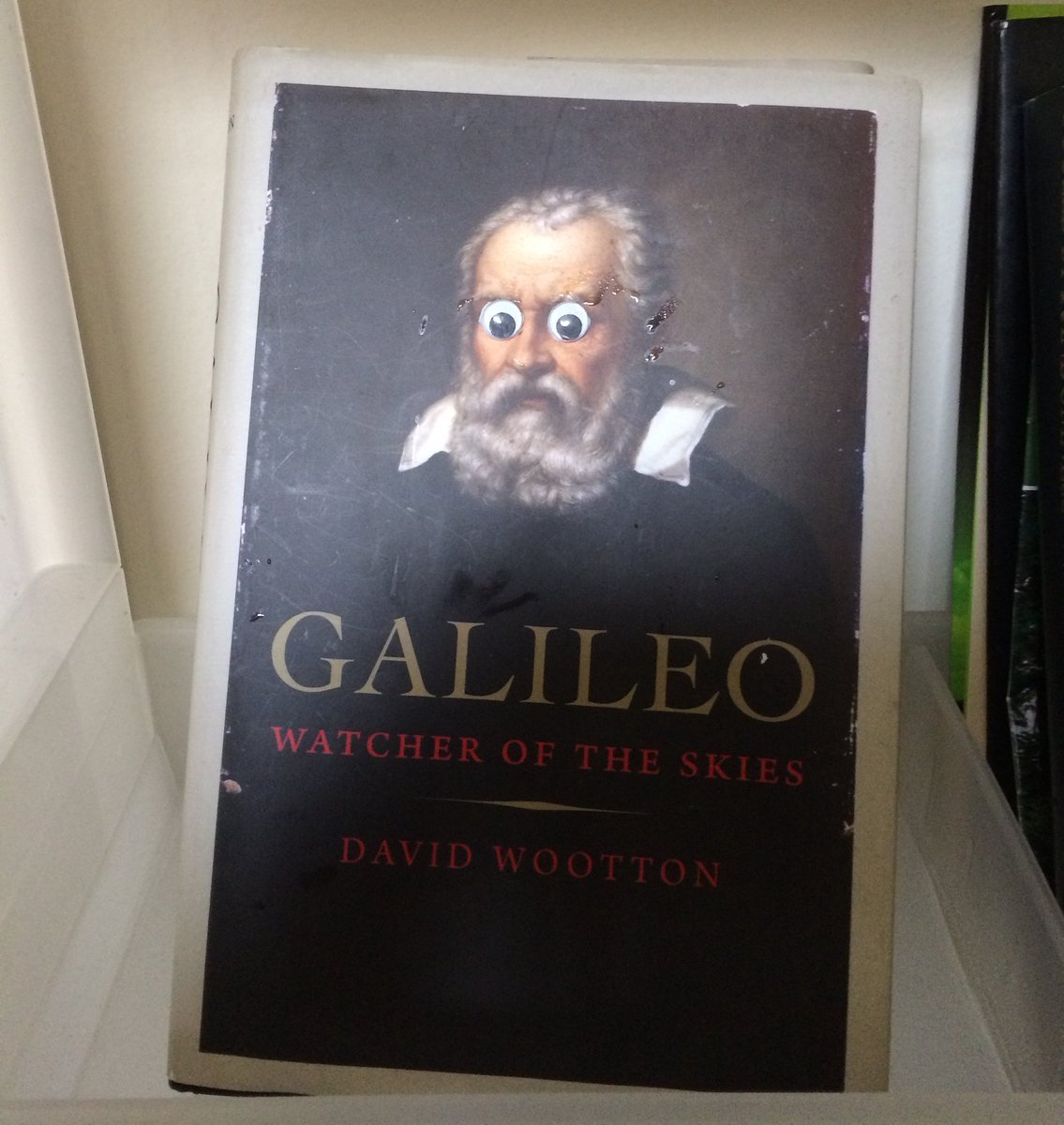


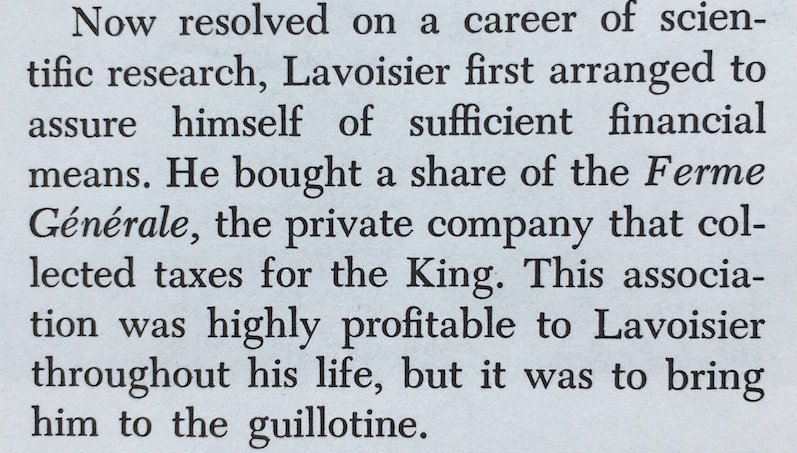
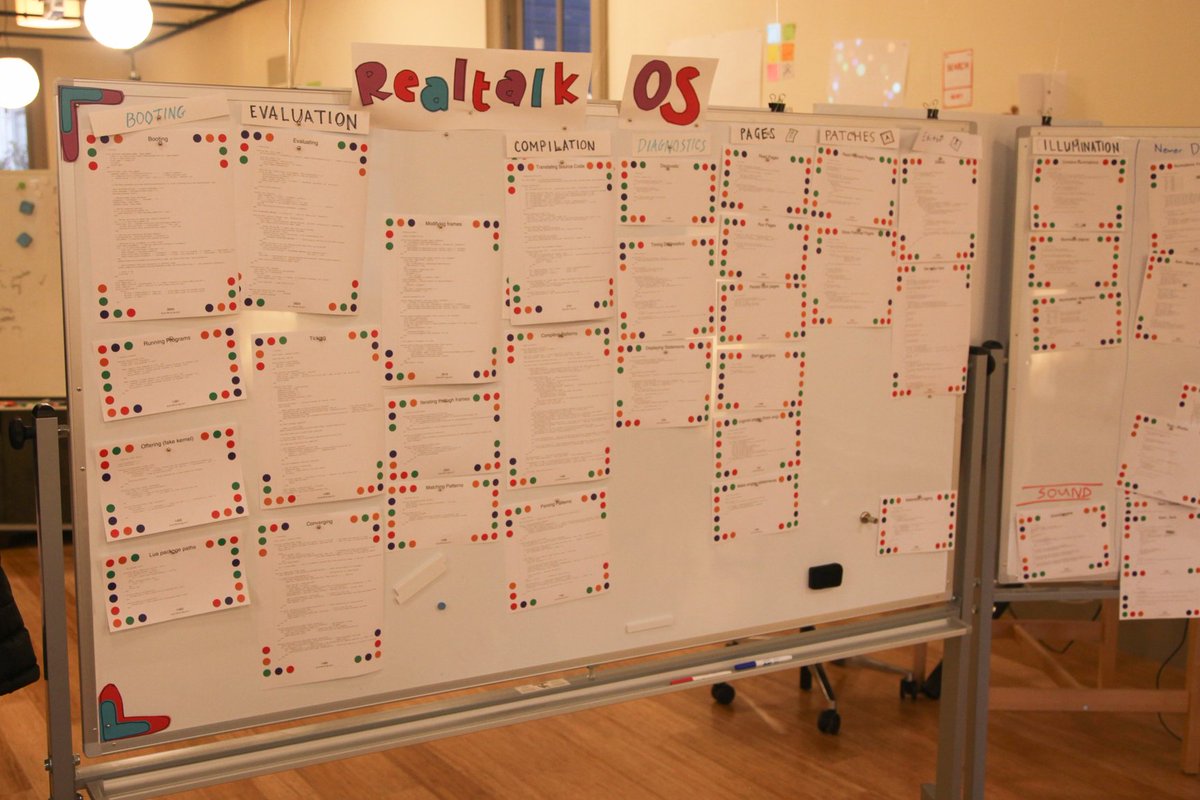
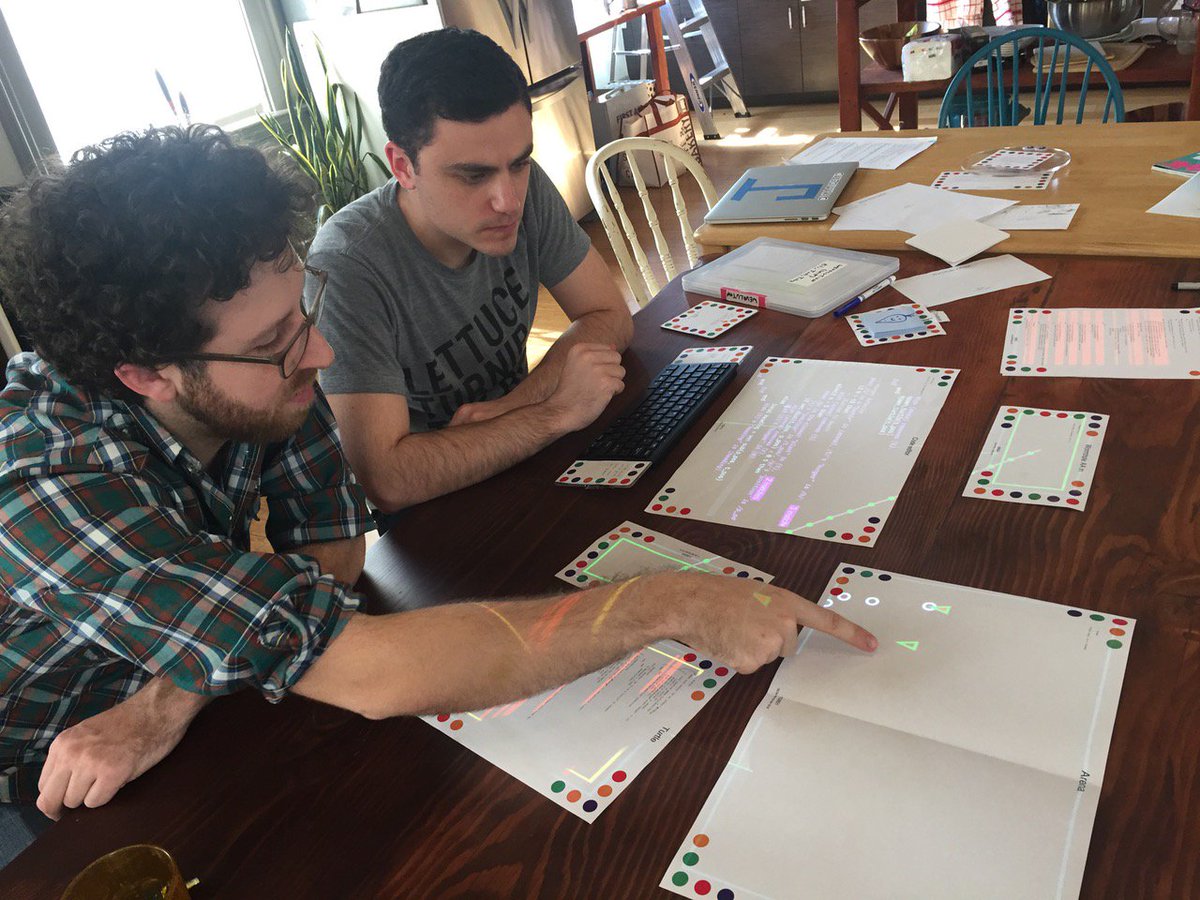
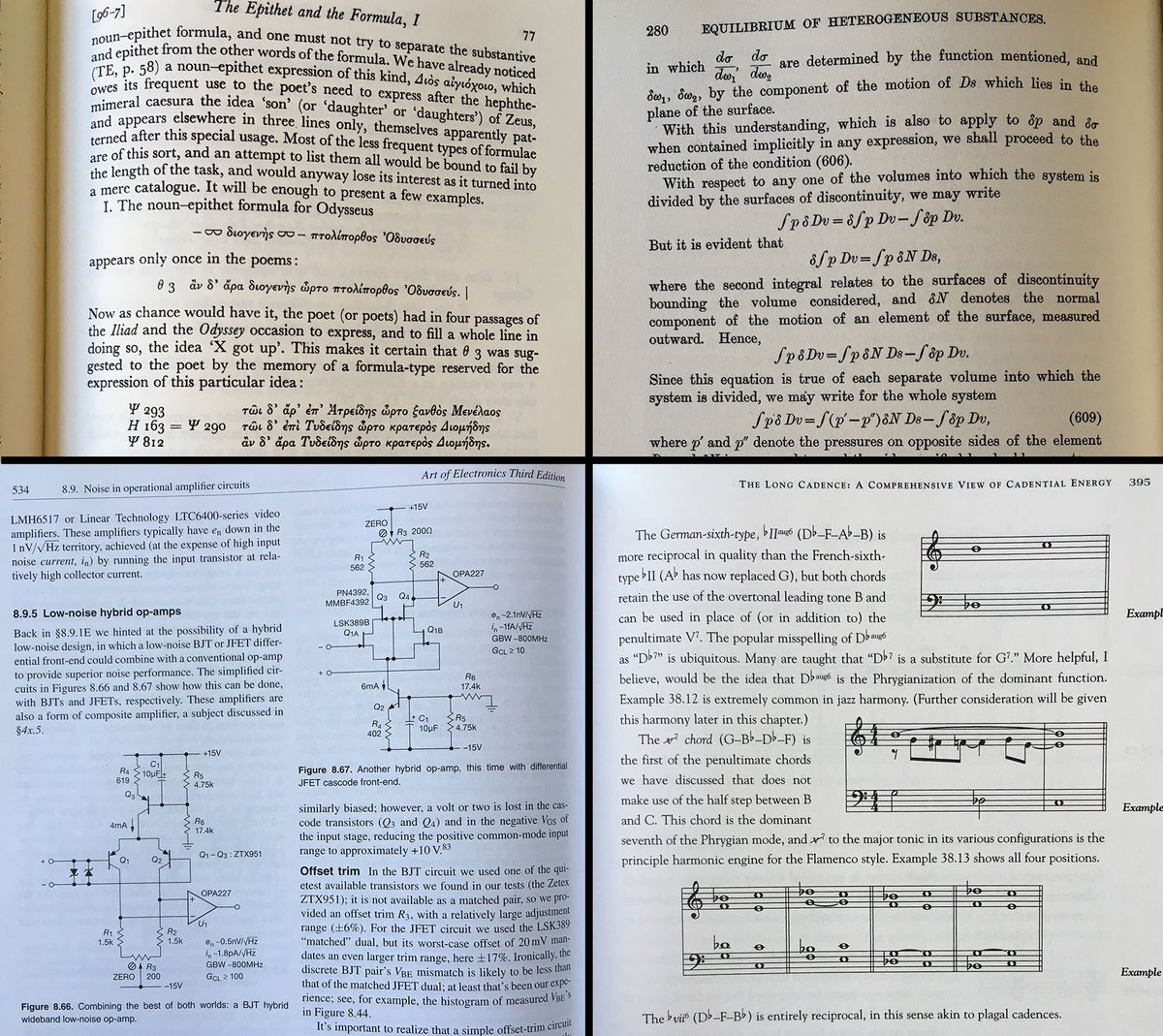

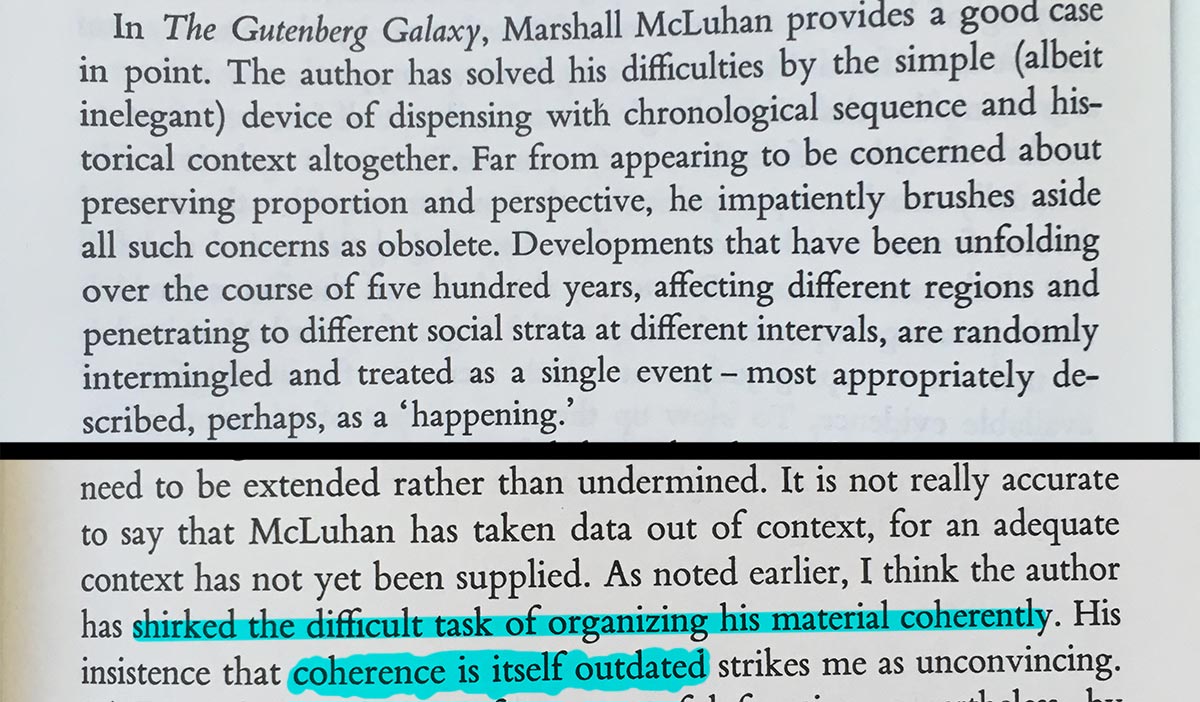

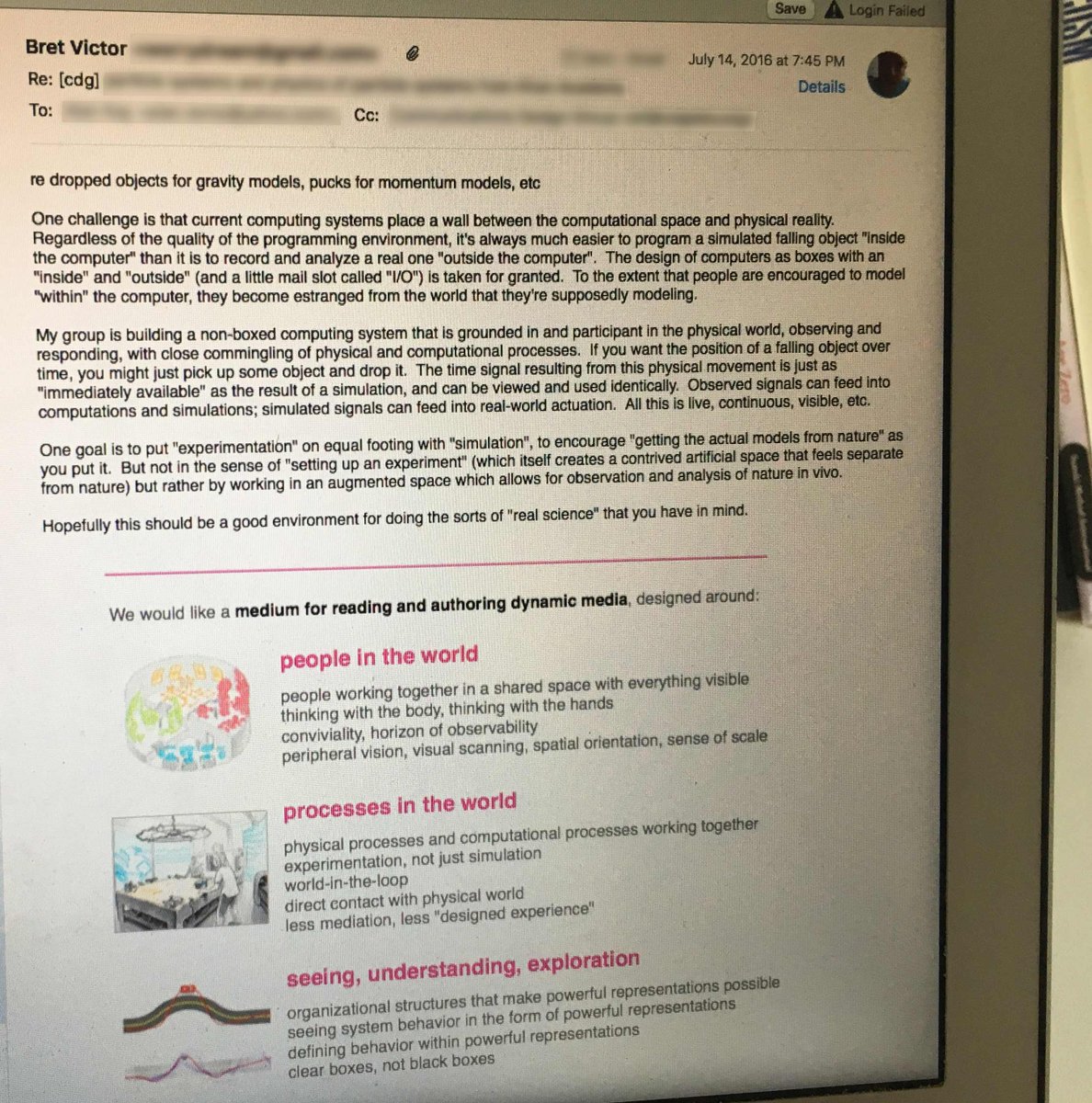
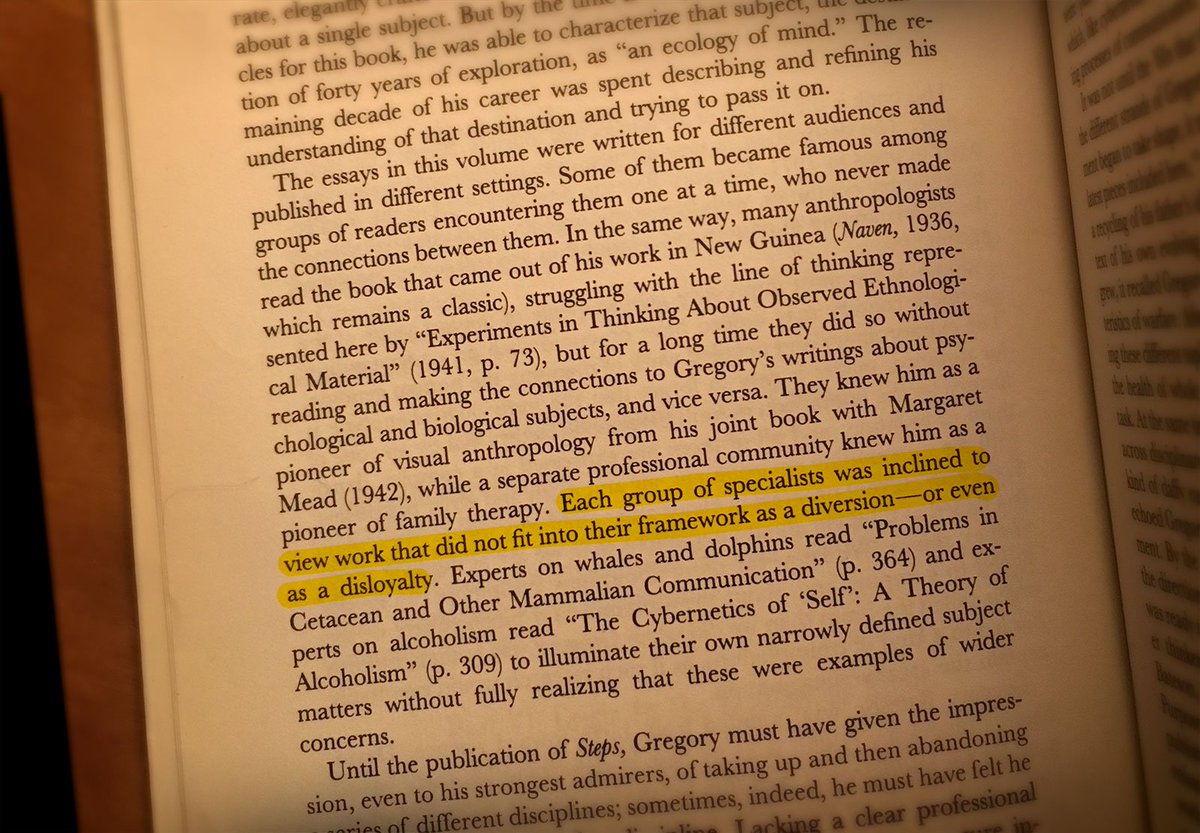




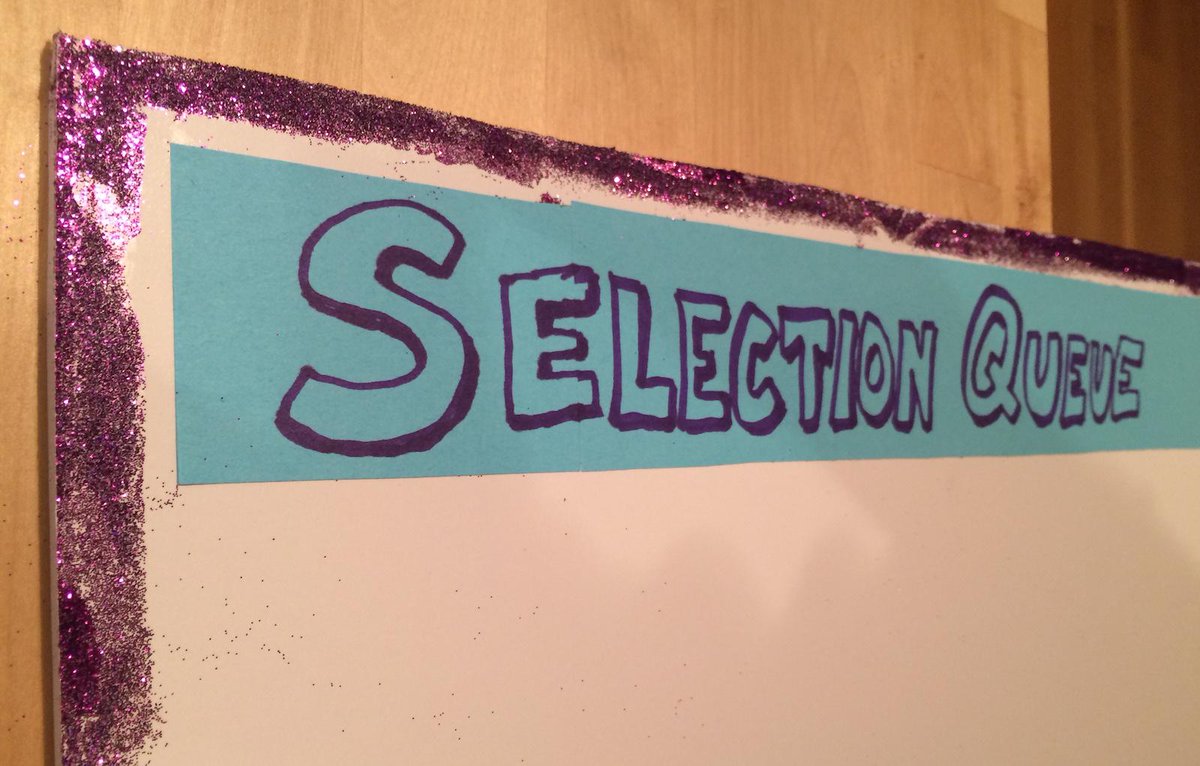









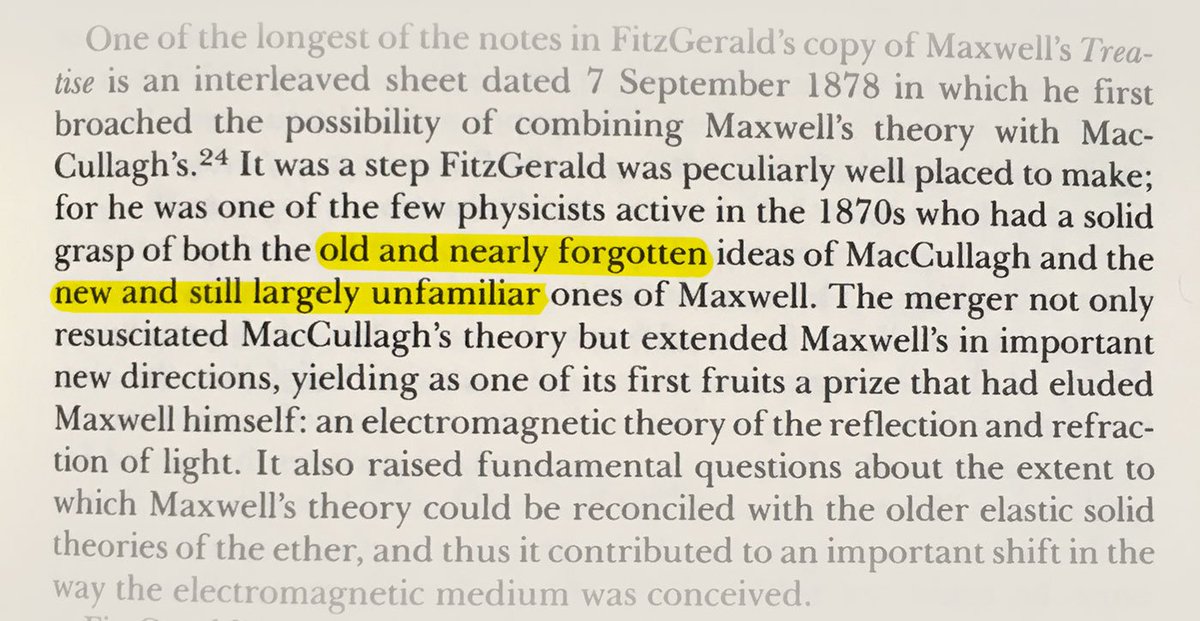
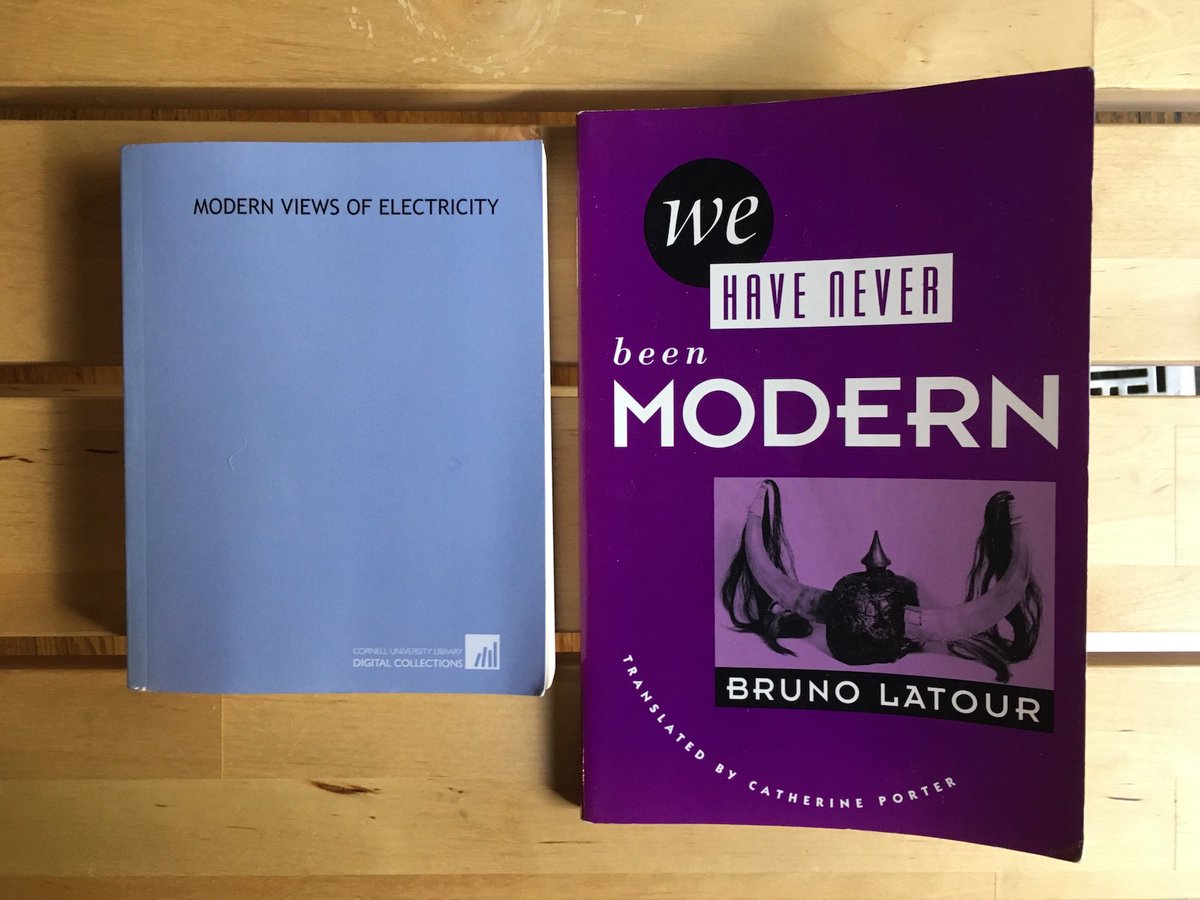
![Tim Berners-Lee: Vannevar Bush Symposium talk, 7:20
So, I still have a dream that the web could be less of a television channel, and more of a sea of interactive shared knowledge...
The “World Wide Web” program, the original browser / editor, was in fact an editor, and you could make links as easily as you could follow them. And that was fundamental. There are two things which seem to me to be totally bizarre. One of them is the fact that you can't do that [now], that we've lost that. So in fact the thing is not interactive. I don't know if I can think of any hypertext experiments in research where you haven't been able to make links just as easily as following them. Authorship has always been right up there. And now, for some historical quirk, which I could go into, I have gone into, I won't go into, we have a whole bunch of things out there which are “browsers”.
So that's something I'm a little embarrassed about. And the second thing I'm embarrassed about... When you made the links, and you edited the text on the screen, you didn't see any of these URLs and HTML and all that stuff. The weirdest thing for me, if you can imagine, is to see an advertisement in the “help wanted” of the Boston Globe, saying they want HTML writers, HTML programmers. I mean, give me a break! That's like asking somebody to come along with the skills to write a Microsoft Word file in binary. The whole thing is totally inappropriate.
Jamie Zawinski: resignation and postmortem
When we started [Netscape], we were out to change the world. And we did that. Without us, the change probably would have happened anyway, maybe six months or a year later, and who-knows-what would have played out differently. But we were the ones who actually did it. When you see URLs on grocery bags, on billboards, on the sides of trucks, at the end of movie credits just after the studio logos - that was us, we did that. We put the Internet in the hands of normal people. We kickstarted a new communications medium. We changed the world.](media/1055600587700649984-DqY-l6BWsAEe7F3.jpg)



